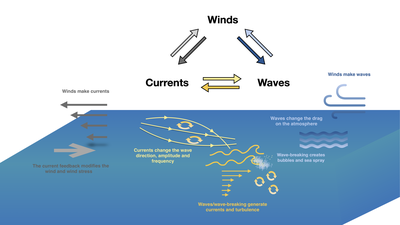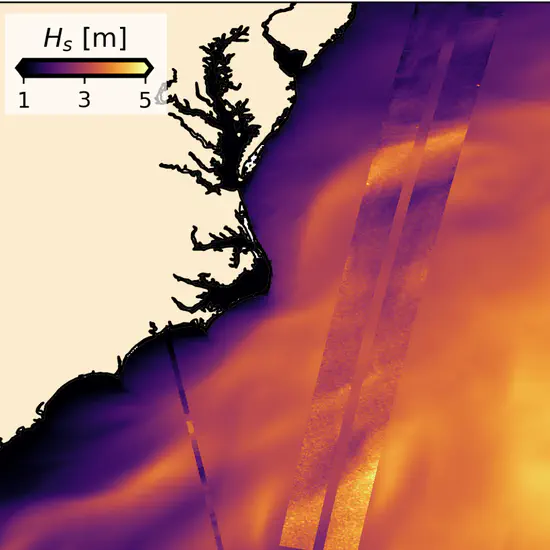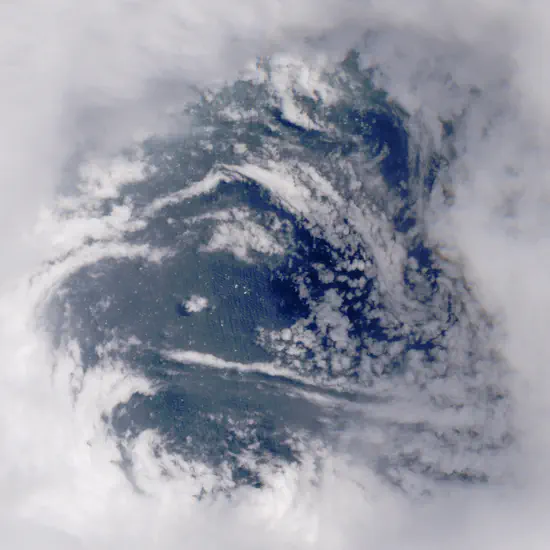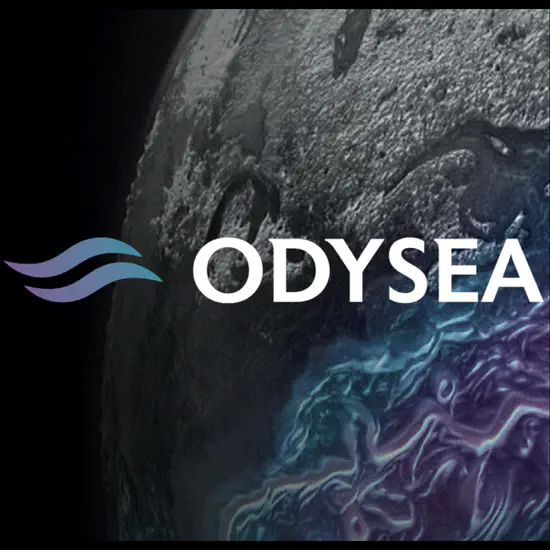Our research
The air-sea transition zone is where exchanges of energy, momentum, heat, and biogeochemical tracers between the ocean and the atmosphere take place. Understanding the physical processes that mediate these exchanges and how to better represent them in models is key for improving weather and climate predictions and designing strategies for mitigation and adaptation in response to the current climate crisis. At Mines Oceanography, we combine observations, theory, and numerical modeling to further our understanding of how coupled air-sea interactions affect the Earth system.

Focus Areas

Wave-Winds-Current Interactions
What mechanisms drive the spatial variability of ocean surface waves? What is the role of wave on air-sea fluxes?

Air-sea fluxes at high winds
How do fluxes of heat and momentum behave at high winds and what processes impact these fluxes?

Multi-scale air-sea interactions
Does air-sea coupling fundamentally change in the transition from meso to submesoscales?